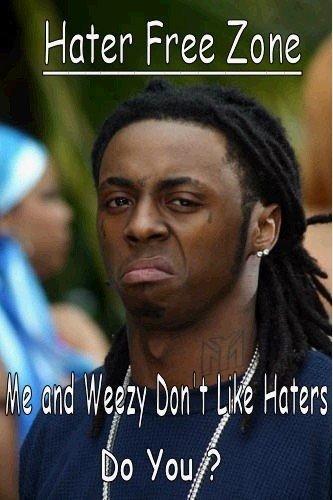So I know we should be done blogging by now, but this draft has been laying untouched for too long as I completed my other posts, and I feel like I should complete it and share it with y'all before I retire as a blogger. 'Cause if I don't do it now, it'll be gone for good.
If you read my other posts, you'll remember that I wrote about characters in Slaughterhouse Five potentially being able to travel through time. Well, I have come to the conclusion that if I could change one thing in the novel, I'd have a villain who can chase Billy through time. Now before you say that Vonnegut never had such a thing happen to him during his life, hear me out.
We will never know for sure whether or not Billy really travels to Tralfamdore, nor do I care for the sake of this post. The important thing is, Billy believes it happens. A person can be prisoner to his own thoughts, and Billy takes it to a whole 'nother level by informing the public of his ludicrous beliefs. What if, for the sake of changing the story dramatically, Billy's mental stability becomes so unhinged that he starts to believe there is a dangerous murder chasing him through time to kill him? If it were to happen, here's how I'd play it out.
 |
| I felt that I should add more pictures? ;) |
After Billy returns from Tralfamadore back to the blissful tortures of Earth, his new knowledge of time and its true meaning is seeking out by a mysterious creature. This creature, neither human nor Tralfamadorian, needs the knowledge to complete his mission, which he cannot reveal to Billy. When Billy refuses and escapes the clutches of death (with the help of his pals, the Tralfamadorians), he becomes unstuck in time and returns to his childhood. There, while eating breakfast with him father, he sees the mysterious being peering into his window, unbeknownst by his father. Little does he know, but this creature, a being stronger than any human but weaker than the Tralfamadorians, is planning to take over the universe, but his people need to fully understand the concept of time first. This thirst for knowledge leads to a great sci-fi adventure for Billy, who must find a way to recruit the Tralfamdorians and protect the universe. Ah, and before you say that time is structured in a certain way and the Tralfamadorians can't/won't attempt to help Billy, the mysterious creature (who comes from planet Shandakafore) is defying the laws of time and somehow travelling through it at will, thus allowing him to chase Billy through varying moments of his life.





